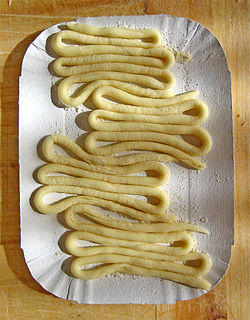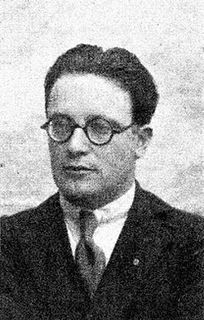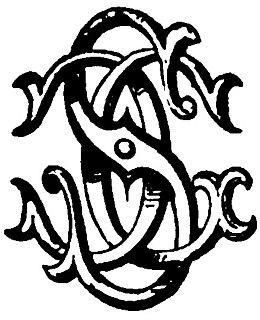Related Research Articles

Duomo is an Italian term for a church with the features of, or having been built to serve as, a cathedral, whether or not it currently plays this role. Monza Cathedral, for example, has never been a diocesan seat and is by definition not a cathedral. On the other hand, the city of Trevi no longer has a bishop, although it once did, and the erstwhile cathedral of Emilianus of Trevi is now a mere church. By contradistinction, the Italian word for a cathedral sensu stricto is cattedrale.
Regional Italian is any regional variety of the Italian language.

Bucatini, also known as perciatelli, are a thick spaghetti-like pasta with a hole running through the center. They are common throughout Lazio, particularly Rome.

Arrosticini are a class of traditional Abruzzese cuisine from the Italian region of Abruzzo. Arrosticini are typically made from castrated sheep meat, or lamb, cut in chunks and pierced by a skewer. It is cooked on a brazier with a typically elongated shape, called furnacella as it resembles a gutter.

Pici is thick, hand-rolled pasta, like fat spaghetti. It originates in the province of Siena in Tuscany; in the Montalcino area they are also referred to as pinci.
Eugenio Miccini was an Italian artist and writer, considered to be one of the fathers of Italian visual poetry.
Lello Voce is an Italian poet, writer, and journalist. He was among the founders of Gruppo 93 and of the six-monthly literary magazine Baldus. He lives and works in Treviso, Veneto.
Massimiliano Chiamenti was an Italian poet and philologist who lived in Bologna, and taught at the "Liceo delle Scienze Sociali Laura Bassi and the "Liceo Scientifico Leonardo Da vinci"".

Scialatelli[ʃalaˈtɛlli] is a short, thick pasta with a rectangular cross section and an almost straight but slightly irregular, slightly curvy shape. It is typical of modern Campanian cuisine, having originated on the Amalfi coast as a chef's specialty, but it has also spread in nearby regions such as Calabria and Basilicata.

Bruno Migliorini was an Italian linguist and philologist. He was the author of one of the first scientific histories of Italian language and was president of the Accademia della Crusca.
Il Devoto–Oli. Vocabolario della lingua italiana is one of the best-known monolingual dictionaries of the Italian language, edited by Luca Serianni and Maurizio Trifone. Its first edition is dated 1971 and it is published annually by the Le Monnier.

Giacomo Devoto was an Italian historical linguist and one of the greatest exponents of the twentieth century of the discipline. He was born in Genoa and died in Florence.
Luca Serianni was an Italian linguist and philologist.

Giovanni di Bernardo Rucellai was an Italian humanist, poet, dramatist and man of letters in Renaissance Florence, in Tuscany, Italy. A member of a wealthy family of wool merchants and one of the richest men in Florence, he was cousin to Pope Leo X and linked by marriage to the powerful Strozzi and de' Medici families. He was born in Florence, and died in Rome. He was the son of Bernardo Rucellai (1448–1514) and grandson of Giovanni di Paolo Rucellai (1403–1481). He is now remembered mostly for his poem Le Api, one of the first poems composed in versi sciolti to achieve widespread acclaim.
Maurizio Trifone is an Italian linguist and lexicographer.
Le Monnier was an Italian publishing house. It was purchased by Mondadori in 1999.

Felice Le Monnier was an Italian publisher.

Sansoni is an Italian publisher founded in 1873 by Giulio Cesare Sansoni, located in Florence.
Aldo Duro was an Italian linguist and lexicographer. He worked for both the Accademia della Crusca and the Enciclopedia Italiana, of which he was director of the lexicography. Duro was also the director of the Italian Vocabulary.

Federico Gentile was an Italian publisher. Gentile is best remembered for founding the publishing company Le Lettere, that he created after many years at the helm of Sansoni, which was acquired by Giovanni Gentile who entrusted it to his son in 1932.
References
- ↑ Vinci, Anna; Oli, Gian Carlo (1993). Bugiarderia: interviste "sincere" con Giancarlo Oli, Dacia Maraini, Franco Grillini, Simona Argentieri, Bruno Storti, Massimo Geraci, Tina Anselmi, Gervasio Gestori, Pinocchio (per copia conforme, Fernando Tempesti) (in Italian). Edizioni Associate. ISBN 9788826702100.
- ↑ Devoto, Giacomo; Oli, Gian Carlo (2000). Il dizionario della lingua italiana (in Italian). Mondadori Education. ISBN 9788800510868.
- ↑ Devoto, Giacomo; Oli, Gian Carlo (1981). Vocabolario illustrato della lingua italiana (in Italian). Selezione dal Reader's Digest.
- ↑ "da Oli a Sassu, la cultura sul Carroccio". Corriere della Sera (in Italian). Archived from the original on 2015-11-05. Retrieved 2017-09-03.
- ↑ "::: Ministero dell'Interno ::: Archivio Storico delle Elezioni - Senato del 27 Marzo 1994". elezionistorico.interno.it (in Italian). Retrieved 2017-09-03.